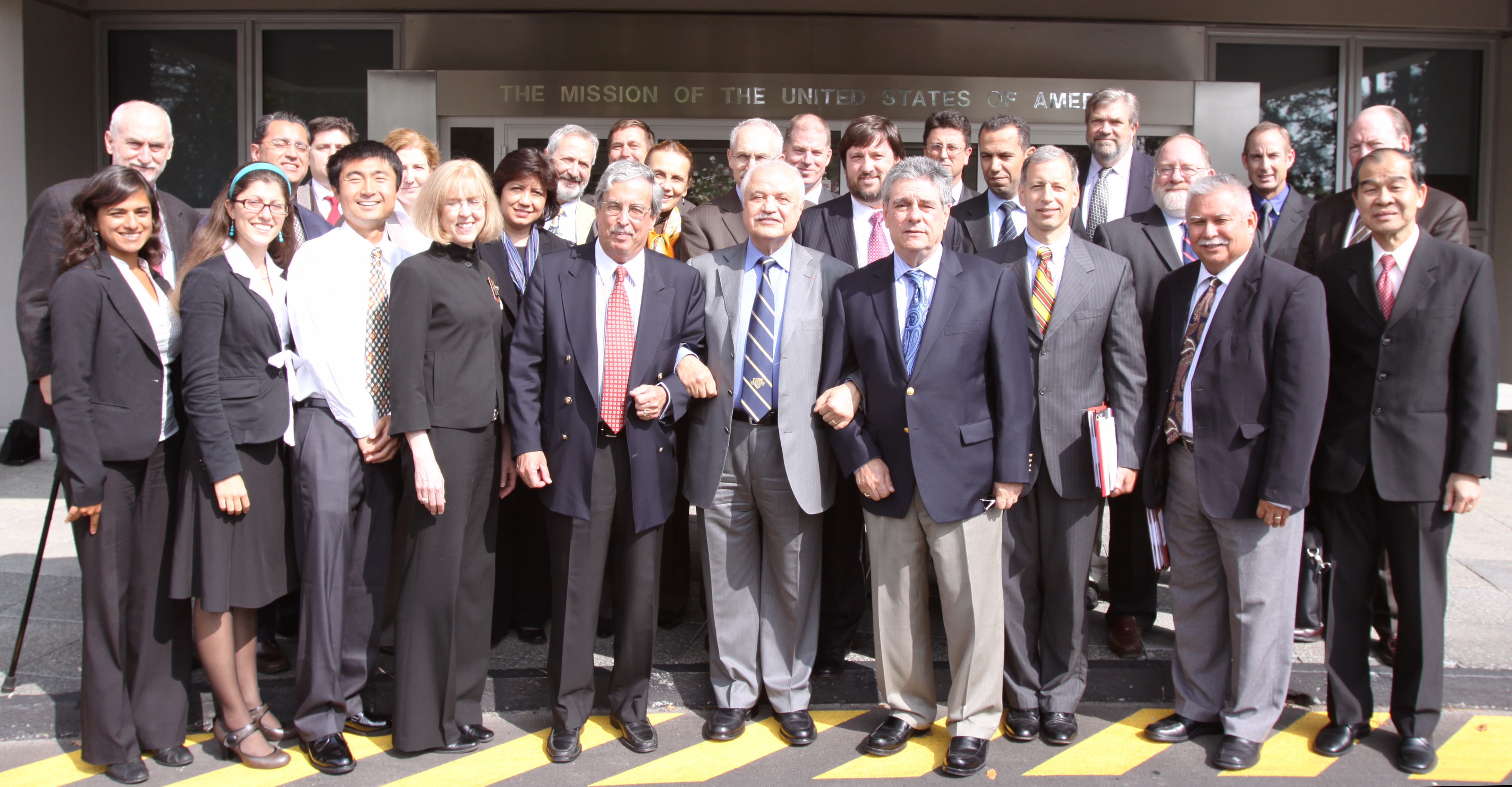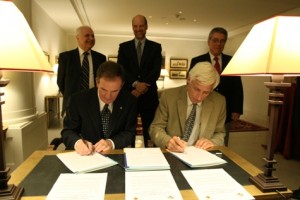The 2009 Global Security Challenges Roundtable

On 21-23 September 2009, the Centre for International Governance of the Graduate Institute, in collaboration with the U.S. Naval Postgraduate School hosted a roundtable on “Global Security Challenges.” This event was held at the U.S. Mission in Geneva. It was an initiative of the U.S. Naval Postgraduate School and prominent research organizations from the USA, Europe, the Middle East and Asia. It was intended to explore some of the existing applied policy research on security challenges and threats and to facilitate the exchange of multidisciplinary experiences at the interface of globalization and security. The event was attended by more than 60 military and civilian experts as well as by stakeholders from the Geneva international community, China, Jordan, Singapore, Switzerland, the United Arab Emirates, the United Kingdom and the United States.
The roundtable was organized around a series of sessions; each dealt with a different security challenge and risk profile. Topics included energy security; human security; economic security; cyber security and protection of critical infrastructure; and emerging global security issues. In each session participants were asked to consider security-related issues from global and regional perspectives; discuss the driving forces behind the different security issues and their impacts; and examine possible options for multilateral policy initiatives aimed at ensuring better management of emerging security threats.
Conclusions
Concluding two days of discussion, participants noted that the extent of current security challenges gives serious cause for concern. Further exchange is needed to debate the issues further and devise policy options to overcome them. Although the two-day roundtable only scratched at the surface of the complexity, inter-linkages and consequences of these security risks, participants felt that discussions between experts drawn from different fields and backgrounds had been a fruitful exercise. Drawing on the analogy of open-source versus proprietary software, some participants likened the discussions to an attempt to create an “open-source security society.” Yet, participants were still undecided about the extent to which some of the issues identified were genuinely security risks and therefore globally relevant.
Given the plethora of threats and risks discussed during the roundtable, some participants pointed out that, while every effort should be made to counter these risks, there is also a risk of indulging in hysterical over-reaction. Several participants cautioned that the world would have to accept that security can never be absolute. Finally, they cautioned that any counter-risk measures must be weighed against their possible adverse effects.
Participants were particularly pleased at the choice of Geneva as the location for the roundtable event. Switzerland’s neutral status as well as the international character of Geneva with its huge number of international governmental and non-governmental organizations and research institutions made Geneva an ideal setting for exchange and community-building. In light of Geneva’s status as an international center for humanitarian organizations, some participants suggested that it might be a particularly good location for further dialogue between military and humanitarian actors. Looking forward, participants suggested other topics that could form the basis of similar discussions including global crisis management and the role of research in global policy development.
Moving Forward
 The 2009 Roundtable established the scope of topics that would be further addressed in the 2010 Global Challenges Forum. Moreover, the Summit produced the vital institutional agreements to advance the GCF as an organization. On September 22, 2009, Naval Postgraduate School President Danial Oliver and University of Geneva Rector Jean-Dominique Vassali signed a letter of accord between their respective institutions, agreeing to pursue further collaborative efforts in areas of globalization and public policy.
The 2009 Roundtable established the scope of topics that would be further addressed in the 2010 Global Challenges Forum. Moreover, the Summit produced the vital institutional agreements to advance the GCF as an organization. On September 22, 2009, Naval Postgraduate School President Danial Oliver and University of Geneva Rector Jean-Dominique Vassali signed a letter of accord between their respective institutions, agreeing to pursue further collaborative efforts in areas of globalization and public policy.